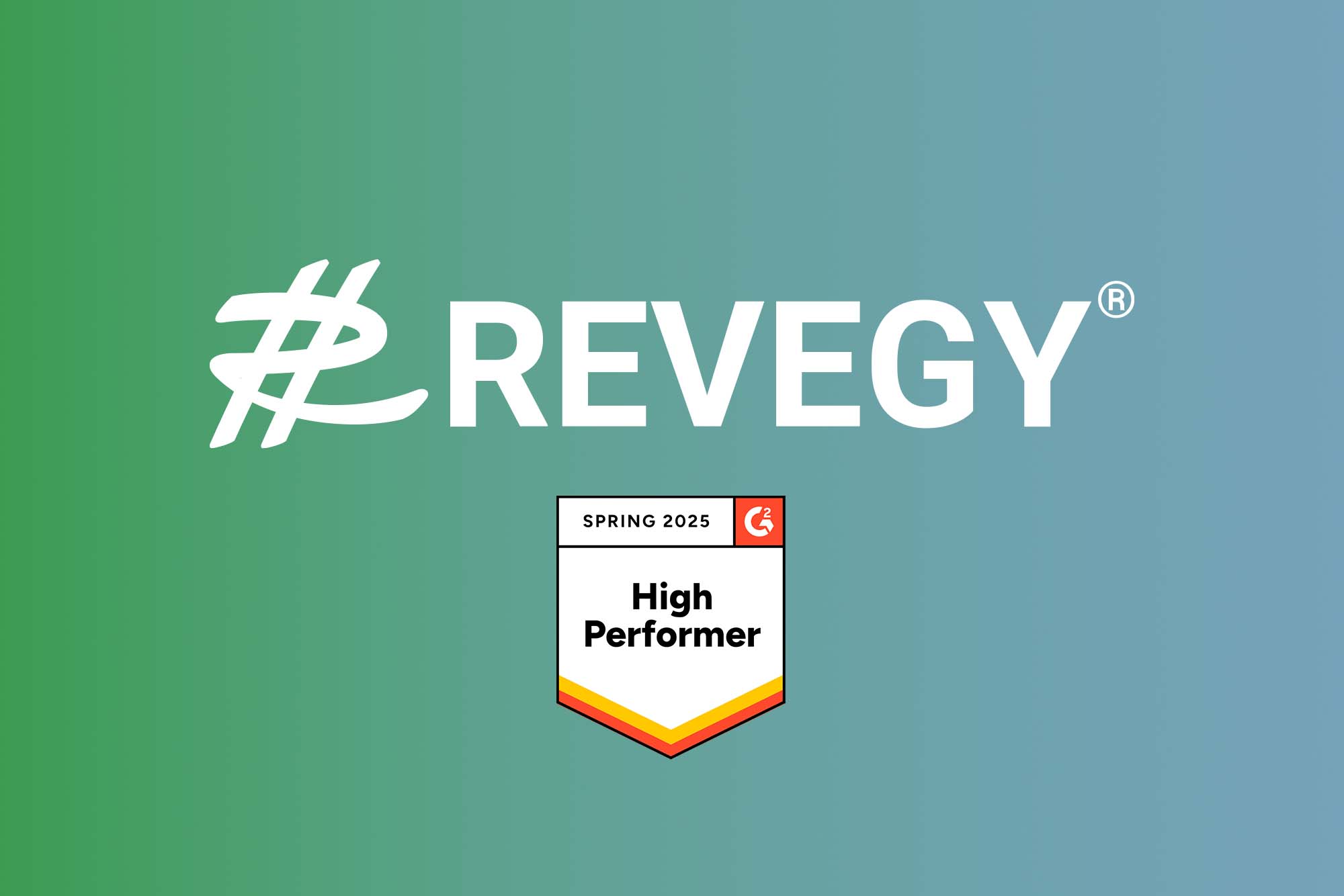Building an effective sales team requires more than just recruiting, hiring, and onboarding the right talent. To help team members reach their full potential, it’s essential to support them with proven sales coaching strategies. While some sales reps may come with natural talent or extensive experience, others may need additional guidance to excel. Yet, regardless of experience or skill level, every rep stands to benefit from quality coaching—a process that empowers all members of your team to navigate challenges, close bigger deals, and build strong client relationships.
Research backs up the importance of coaching, with a 2021 survey revealing that 96% of team leaders saw a significant impact on their sales reps’ effectiveness due to coaching. Leaders also noted that scaling these efforts was a top priority. This guide dives into effective sales coaching, providing templates for all types of coaching meetings, including preparation, performance tracking, and follow-up strategies. With the right coaching, you’re setting your team—and yourself—up for success. Happy coaching!
Understanding the Role of a Sales Coach
Armed with extensive experience and expert knowledge, a sales coach provides sales professionals guidance, support, and sales training, elevating their selling skills and performance. With personalized coaching and practical advice, a sales coach empowers salespeople to overcome challenges, increase their confidence, and achieve their sales goals.
What is Sales Coaching?
“Sales coaching” can refer to any mentoring system or technique designed to assist a sales force in maximizing sales performance and achieving company goals. Sales coaching is:
- Inclusive and valuable to all members of a sales team regardless of tenure
- Individualized so that each rep receives the type of mentorship they need
- Based on detailed data and analyses
Sales coaching helps your sales team achieve higher success rates. A sales team becomes truly unstoppable when its members feel a deep sense of purpose and are empowered to realize their immense potential for personal and professional growth in their sales roles.
What Does Effective Sales Coaching Look Like?
While pretty much any talent manager or sales team leader can appreciate the benefits of good sales coaching techniques, it’s essential to know what does and doesn’t make a coaching system effective. Common coaching mistakes and pitfalls include:
- Adopting a cookie-cutter approach
- Telling reps what to do instead of empowering them to find solutions independently
- Focusing too intently on numbers instead of skills-building
- Failing to evolve with marketplace trends, etc.
A great sales coach works with team members one-on-one. They offer individualized sales training and best practices. And they help team members make the most of powerful sales enablement resources that simplify the process of account planning and opportunity management.
Revegy helps individualize your company’s sales training with reliable, data-based analyses that make it easy to identify and address each team member’s strengths and weaknesses. You can rest easy knowing that each of your sales reps will receive the personalized encouragement, assistance, and information they need to reach their full potential.
What are the Benefits of Sales Coaching?
Adding insight-led coaching solutions like Revegy to your company’s sales coaching methodology can boost your bottom line in a big way. But that’s not the only benefit. Here are others to consider.
A High Return on Your Sales Coaching Investment
Gartner’s research in 2019 estimated that B2B sales representatives only retain approximately 30% of the information they receive during initial training. These retention rates can plummet within a month to an abysmal 13%.
Adding effective sales coaching techniques and resources can improve these statistics. People – including those on your sales team – learn best and retain information more effectively with long-term reinforcement and guidance.
Revegy’s easy-to-use sales execution platform supports and empowers sales reps of all experience levels by giving them the resources they need to simplify sales workflows, align internal sales teams, uncover account insights, and accelerate the sales cycle.
Redefine Sales Best Practices
As any sales coach will tell you, star players develop winning sales strategies that yield exceptional results. For example, one sales rep might understand how to network within accounts to cross-sell and maximize wallet share, while another might have a unique way to apply data collected via sales team tools to predict when an account is at risk.
Revegy can make these strategies—and more—accessible to your entire sales team, as experienced by Comcast Business. Revegy made it easier for Comcast’s reps to build stronger account relationships, better navigate obstacles, and boost sales performance across the board.
Retain Your Best Talent
Sales team members who consistently achieve their quotas aren’t just hard to find; they can be even harder to retain. High employee turnover is especially problematic within sales departments, so an effective retention strategy is crucial.
High turnover rates aren’t necessarily about money. According to research from the Conference Board, a company can expect approximately 58% of its employees to eventually seek employment elsewhere when they aren’t presented with ongoing opportunities for professional development.
Remember, people need to feel empowered, contribute to meaningful goals, and see a real future with their companies. A great sales coaching system can help provide these motivators and entice your best talent to stay on board.
By bringing genuine, ongoing opportunities for professional growth, Revegy helps top companies like Comcast and others retain their most talented reps and benefit from their expertise and tenacity over the long term.
Best Practices and Sales Coaching Tips for Modern Companies
If you’ve researched sales coaching solutions, you likely already know that, like the companies they serve, each approach to coaching is unique. One option might work well for one company but fail at another, so choosing solutions that fit your team’s needs and company goals is essential.
Look at Your Sales Methodology
When assessing your sales coaching needs, the best place to start is to look at your existing sales methodology. Does your salesforce rely on multiple processes to manage the sales cycle, for example? If so, consider technology like Revegy software to help streamline sales workflows.
Not sure what might work or whether a system you’ve already implemented is suitable for your team? Ask your team about their experiences via a survey or other internal feedback collection method.
Adopt a Data-Based Approach
Without solid sales and account data and a way to analyze it effectively, you’re flying blind. Data is at the heart of any reliable sales methodology, so you need a data-based sales opportunity planning solution.
For example, Revegy’s revenue enablement technology can do more than organize your account management activities. It can give sales reps the powerful resources they need to:
- Ensure each interaction with their clients is high-impact
- Simplify complicated account data
- Identify high-value deals and close them more quickly
- Boost company revenue and personal performance
- See, plan, and complete a path to close and retention with each of their accounts
The right technology can make it easier for sales team leaders to track each rep’s activities and performance and customize coaching efforts. For example, Comcast leveraged Revegy to implement a periodic plan review system that broke sales progress into six elements and assigned overall performance ratings. This allowed for further sales coaching that was perfectly tailored to each rep.
Ignite Sales Team Engagement
Most sales reps don’t just stumble into their careers. Instead, they pursued sales professions for pointed reasons. For example, some reps are great at communication and love interacting with others one-to-one. Others are competitive and enjoy winning a sale from other vendors.
Sales coaching is most effective when it is personalized for each team member. User-friendly sales operations like Revegy enable sales coaches to individualize their coaching techniques and create easy ways to invite sales reps’ feedback, offer self-assessment tools, and unveil insights into account problems and solutions.
Experiment with Various Sales Coaching Techniques
A successful salesperson employs various strategies to close sales, communicate with clients, and increase wallet share with their accounts. Good sales coaches do the same by incorporating proven techniques like:
- Tactical coaching, using data to improve account management success
- Tailoring sales approaches to specific markets or clients
- Personalizing coaching to assist individual reps with skills like communication, building trust-based customer relationships, etc.
Unlock your Sales Team’s Power
Within your sales team, there are shining stars who excel at problem-solving, building relationships, and managing accounts with remarkable finesse. Don’t let their talents go untapped. Instead, seize the opportunity to involve them in your sales coaching program. Encourage them to present their winning methods during team meetings, inspire individual reps to share their insights, and foster a culture of knowledge exchange.
By elevating your best performers, you’ll create a dynamic sales environment where wisdom flows from all directions within the team. Consider integrating a solution like Revegy into your company’s sales methodology to supercharge this process. With Revegy’s support, you’ll empower your sales stars to share their knowledge and inspire the entire team to reach new heights of success.
Embracing Ownership: Instilling Personal Accountability
One of the most significant challenges sales coaches face is instilling a strong sense of personal accountability, even among highly talented team members. The truth is, even the best performers encounter obstacles or face unexpected setbacks, and it is essential to eliminate tendencies toward shared excuses within the team and encourage your sales reps to take ownership of their choices and roles in their performance.
Ownership is the Key to Empowerment
Going from feeling like business outcomes are beyond one’s control to feeling empowered to affect those outcomes positively is an incredible transition. Empowered employees are employees who are more creative, more innovative, and feel more personally invested in the work they do every day.
Revegy gives modern-day companies data and insight to help sales reps make better-informed decisions and hone their selling instincts, ultimately increasing their sense of empowerment.
Ownership is the Key to Accountability
Helping your sales team adopt an “ownership mindset” doesn’t have to require inordinate time and effort. Like Comcast, you can facilitate the behavior by:
- Making sure each team member has a firm grasp on all professional roles and responsibilities, as well as any expectations that come with them.
- Equipping each team member with the right tools for the job (e.g., effective sales account planning software from Revegy).
- Identifying key performance indicators (KPIs) and teaching team members how to measure them.
- Teaching SMART thinking when it comes to goal-setting: Smart, Measurable, Achievable, Relevant, and Time-bound.
Ownership is the Key to Responsibility
As customer-facing teams take more ownership of their performance, they’ll transition from task-based to big-picture thinking and forgo feeling responsible only for individual projects or accounts. They’ll understand their role in achieving the company’s long-term goals and view their success within this context.
Ownership is Being Part of the Process
Team members who feel that sales coaching is a team effort are more likely to feel proud of their own—and their role in others’— work and are personally invested in the company’s success. For this reason, transparency is essential, and the sales team’s and the company’s progress toward goals should be frequently communicated. It’s also important to ask team members for feedback to zero in on what’s working and identify areas for improvement.
Streamlining Insight-Led Coaching with Revegy
In 2024 and beyond, the right account management software is necessary for companies serious about helping their sales departments become as efficient as possible. Revegy takes the guesswork out of sales by providing teams with failsafe blueprints that show them exactly how to achieve their goals.
Understand the Health of your Accounts
Mastering the fine art of maximizing wallet share in B2B enterprise accounts is quite the endeavor. Keeping tabs on the sheer multitude of factors influencing the health of a given account can be daunting. Revegy’s account management solutions revolutionized Comcast’s approach by identifying data trends and uncovering critical account insights to strengthen its sales approach. The outcome? A heightened sense of empowerment among sales reps, a surge in significant deals, and a thriving bottom line. Rest assured, your company can experience the same remarkable benefits.
Achieve Flawless Decision-Making Every Time
Integrating Revegy into your sales coaching will unlock a world of possibilities. You can seamlessly set priorities, craft sales strategies that align with client needs, unify account data, and effortlessly identify key players within accounts. Experience the “Comcast effect” and discover a newfound ease in identifying and pursuing opportunities. Then celebrate repeatable successes as Revegy empowers your team to achieve consistent results. Even complex sales activities like reporting and presentations become more accessible and manageable with Revegy. Refrain from settling for the ordinary when you can elevate your sales coaching approach with Revegy’s game-changing technology. Embrace sales excellence and seize unparalleled growth opportunities.
Watch our Customer Connect 2023 on-demand content here and learn more about Comcast’s effective sales coaching techniques and Revegy’s support in achieving its sales goals. You’ll also gain valuable knowledge from industry experts and leading companies. Discover the evolution of the sales process and how to create a seamless customer experience with Gartner’s Bill Voltmer. Learn about account planning benefits and best practices from Siemens’ Charlie Jonesrebandt, who will also share how Revegy enhances strategic planning.
Sales Leadership Excellence
What characterizes excellence in sales management?
- A consistent approach and defined cadence for leading a sales team.
- A coaching model that enables sales leaders to provide the right level of feedback against a defined sales process in a way that recognizes where a sales rep is in their development.
- A defined method for sales leaders to model, reinforce, and coach the sales process.
The overall purpose of this playbook is to enable sales leaders to establish a cadence and disciplined framework to manage their coaching conversations, identify potential issues early, and build on success. In addition, elements of this playbook will help leaders assess the selling competencies of their teams and customize coaching for improved performance effectively.
This guide outlines a management cadence across the following vital interactions:
- Sales VP & Sales Leader 1:1
- 1:1 Sales rep reviews
- Pipeline review
- Opportunity review
- Side-by-side coaching
- Daily scrum meetings
- Annual quota setting
Coaching Methodology
Sales performance and individual skills move through three basic levels of development. Each one requires varying levels of direction and support from a sales leader. The goal is to provide a balanced approach while working to develop the entire sales skillset.
Level 1: Struggling
The sales rep has been taught the skill and demonstrates observable difficulties in optimizing performance.
Level 2: Developing
The sales rep can demonstrate the skill and executes well but is not yet consistently performing at a level that doesn’t require more oversight.
Level 3: Excellence
The sales rep achieves consistent results with the skill, requires little coaching, and can execute at a level where they can teach others.
Common Symptoms at Each Development Stage
- Struggling
- Does not know what they do not know
- Eager, excited
- Makes a ton of mistakes
- Thinks it will all be ok
- Wants more help
- Developing
- Learning this job is going to be more challenging than expected
- Makes fewer mistakes but is still all over the place
- Losing confidence
- Afraid to ask for help – Will it make me look bad?
- Excellence
- Understands the job/task well
- Knows what to do and does not fluster easily
- Aware when they make a mistake
- Knows how to impact performance
- Independent – demands the coach to know the game
Coaching Looks Different at Every Stage
Critical Concept
Defining performance is NOT just about a sales rep’s ability to meet quota or sales goals. Performance is the comprehensive list of selling skills or competencies. Sales leaders need to consider the whole skill set of each rep and apply the appropriate level of coaching for the observed effectiveness level.
Struggling = TEACHING
Sales leaders must apply significant direction for the selected skill. At this stage, focus on showing the rep what to do and how to do it. Then, look for them to apply the skill in their process consistently.
Developing = COACHING
Sales leaders should apply some direction, but the sales rep is now doing most of the work and receiving coaching on their performance during sales calls. Observe the rep in action, looking for positive trends and coaching the rough edges.
Excellence = SUPPORT
Sales leaders do not need to apply a lot of direction. The sales rep can do all the work. Sales leaders can push them for even higher performance levels against a skill at this stage. The focus should be on ensuring they stay the course and demonstrating what “good looks like” to other team members.
Coaching Best Practices
- Always follow-up
- Conduct observation in the field
- Provide behavior-based coaching
- Practice
- Reinforce
- Be consistent and fair
A Structure for Feedback
Having identified the skill(s) to be coached and the level of performance, a sales leader must provide structured feedback and coaching using an action-oriented approach. This structured approach is proven to help sales reps move the needle.
Topic/Skill
Identify the topic or skill that needs to be isolated and coached.
Goal
Identify goals and what specifically needs to happen concerning the coaching interaction.
Reality
Clearly explain the impacts (positive/negative) of the skill(s) to be coached on selling interactions with prospects/customers.
Options
Brainstorm options for improvement (ask, don’t give them the answer unless they are struggling) and empower the sales rep.
What’s Next?
Identify specific steps and obstacles and craft a timeline that includes actions, timelines, and follow-up dates.
Coaching Mistakes to Avoid
- All talk and no direction or action – This is a pitfall for a sales leader who does not know their coaching skills or is afraid to have difficult conversations.
- Not having “game film” or good examples to use – This is a mistake a “hands-off” sales leader makes due to not having listened to calls or spent enough time on the floor listening.
- All bark and no positive reinforcement – Sales leaders may forget that coaching is not just about identifying mistakes but also about balanced feedback and building on strengths.
- Not discussing consequences when appropriate – When performance gaps reach the point of no return, sales leaders must be able to escalate the conversation so that a rep realizes their job is on the line.
- Lack of timely follow-up – To be effective, coaching requires an investment in a follow-up at a near-term 1:1 (the following week); otherwise, reps will know that they can hide.
Establishing a Sales Management Cadence
A sales management cadence is a structured series of events that establish a pace for sales leaders and their reps. It helps reps set goals, track results, improve performance, and hit their number. This intentional approach is foundational for improving performance, managing pipeline/opportunities, and keeping a firm grasp on the health of the business.
A formal structure and a digitized record will make life easier for both leaders and individual contributors.
Example Cadence Framework
- Annual – Quota Kick-Off (SKO)
- Quarterly – QBR (Quarterly Business Review)
- Monthly – Pipeline Review
- Weekly – Strategic Opportunity Reviews, Formal 1:1
- Daily/As Needed – Side-by-Side, Daily Team Scrum
Success Criteria
There are three foundational practices for being effective and efficient with coaching time. First, sales leaders must manage the clock and ensure their teams are set up with efficient systems. Second, they lead from the front and set performance examples. And lastly, they need to get the most significant impact from each cadence event.
Creating a framework helps ensure long-term success. Determine timing and communications elements to help you establish expectations. Here are some things to consider:
| Calendar Timing | Communications |
|
|
We have four exercises for your preparation:
- Objectives and Agenda
- Meeting Framework
- Pre-meeting Prep
- Overview of Coaching Activities
Cadence Events
To keep your team on track and to keep yourself knowledgeable about any struggles (or winning plays), you need to ensure you are coaching on a regular basis. That’s why you need to schedule regular touchpoints at both the individual and team levels. Below is more information about each of those meetings and some ideas for their structure.
Cadence Event – Sales VP & Sales Leader 1:1
Sales managers thrive when provided with the wisdom and leadership of a strong sales executive. Whether it’s the Sales VP, Director, or C-Suite, sales managers need a regular check-in to improve performance and lead their sales reps with confidence.
Cadence Event – 1:1 Sales Rep Reviews
Sales Managers should consistently meet with their sales reps. This gives managers the opportunity to coach on areas where they may be struggling and help reps to identify blindspots. We have a corresponding coaching template that contains a tab for the review itself as well as an assessment for your reps’ skills. You can get that from our guide here.
Pipeline Expansion Conversation
Review the math from their demo to close and investigate the progress.
Role Play Sales Calls
Focus on specific development areas such as qualifying, pitching, managing objections, closing, etc.
Fluency Practice
Test the ability to speak to various industries, products, use cases, success stories, etc.
Limitations
Talk about ‘Risks/Barriers/Limitations’ – what can go wrong, and proactively formulate a plan to mitigate/circumvent the issues. With a product like Revegy, these coaching skills are brought to the forefront directly in the platform.
Win/Loss Analysis
Explore why key deals are closed won or lost.
Team Meeting
Conduct skill-based practice informed by opportunity analysis or recorded calls.
Peer Coaching
Use tenured reps to help build the skills of their peers.
Competitive Knowledge Workshop
Share points of difference and value, collaborate on experiences, case studies that drive results, etc.
Cadence Event – Pipeline Review
Managers should be checking in with their sales reps and guiding them to be able to effectively assess the health of their pipeline and build the necessary skills to confidently close gaps and make their number. Here are some additional ideas to increase confidence in your pipeline.
Fill the Funnel
Highlight deals of multiple sizes (small, medium, large) to encourage mix and multiplier achievement (2X goal).
Knowledge Check
Ensure that reps can explain the details of deals and highlight the critical requirements of prospects. Do this by outlining clear expectations. What details should matter most to the discussions? What isn’t contributing to this type of conversation?
Team Check
Have reps present a deal and allow peers to ask constructive coaching questions that will lead to advancing the sales process. Outlining rules of engagement is key: how long do you have to present the ‘vitals’ of the deal, what risks should be highlighted, what sort of questions should the team be asking, etc. (No guard rails here—this could be a morale killer versus a constructive exercise.)
Moving the Needle
Have reps describe the details of a stuck deal (a prospect not moving from their current state) and gain ideas from peers on what actions to take.
Focus on the Math
Have the rep isolate prospects to demo, demo to qualified/quantified live opportunity, closing percentage, average deal value, etc. At Revegy, we talk a lot about confidence level: What are we committing (will happen), what is best case (good probability), what is a long shot (could maybe happen if hell freezes over…). Lastly, do we have enough in the pipeline to hit our goals? What combination(s) of deals gets us to our number?
Cadence Event – Opportunity Review
Regularly analyze, develop, and execute plans with your team to win larger deals ($50K+).
Coaching Ideas & Opportunities for the Opportunity Review
Here are some additional areas to focus on when conducting opportunity reviews.
Focus on the Front of the Sales Process
Engage reps on how they qualify deals and get to the middle of the sales process to understand where late-stage problems begin.
Compare Deals in the Funnel
Have reps describe deals in process and help them to prioritize accounts.
Competitive Focus
Use team knowledge to collaborate on how to differentiate and inspire action to advance deals more quickly.
Large Deal Tear Down
Dissect a more significant deal (during or after) as an exercise to understand why we won and what things we did to advance the sales process.
Cadence Event – Side-by-Side Coaching
Side-by-Side Coaching is an observation of a sales rep during sales calls, ensuring that each customer interaction has optimal impact to advance a sales opportunity.
Coaching Ideas & Opportunities for Side-by-Side Coaching
The Practice Field
Use observations and recorded calls to role play while focusing on strengthening core skills.
The Obstacle Course
Before planned calls, ask questions about what could take the meeting off track and how they will handle the obstacles.
Watch/Listen to the Experts
Have the rep listen to peers who have mastered the skills they are working on.
Watch me
Take the lead on some calls side-by-side; let the rep hear the differences in how you handle specific situations and discuss.
Cadence Event – Scrum Meeting
Use the scrum meeting to set the daily pace for sales by running a consistent meeting that is productive, engaging, informative, and helps identify areas where sales reps are stuck.
Tips for Leading the Meeting
- Do not let people talk for too long; keep them on task.
- Help the reps with their stuck items and encourage other team members to offer help; take it offline if the solution requires more time.
- Do not dig into individual performance numbers in the meeting; get the numbers and dig deeper individually if needed.
- Move quickly – this is not a coaching meeting.
- Encourage the team to come prepared with questions/stucks.
 Cadence Event – Annual Quota Discussion
Cadence Event – Annual Quota Discussion
Review sales rep’s plan for achieving their annual sales targets, including strategies, high priority wins that are already in motion, monthly/weekly activity metrics to drive the numbers, obstacles, and any gaps/concerns that may exist.
Coaching Ideas & Opportunities for the Annual Quota Discussion
Turn Up the Heat
Make sure to monitor progress weekly and talk about performance metrics so they understand the power of a few bad days.
Success Metrics
Keep reps focused on demos, new contacts, demo to close percentage, and deal sizes; help them see the light and get passionate about metrics.
The Stretch Goal
Use their personal goals and game-changing money desires to chart a path for them to turn into reality.
No Cruise Control
Focus the dialogue on never being comfortable with the status quo and ask reps how they can drive higher results every day (makes an effective team meeting).
The Stark Reality
If someone falls behind, help them chart a path to recovery that focuses on the controllable levers – activity and closing deals. Don’t let someone get so far off the pace that they lose motivation.
Conclusion
This coaching approach is meant to help guide you, your sales leaders, and your reps to develop as salespeople and win more deals. Leaders should coach their teams in a way that helps them learn and understand the path to sales excellence. When you take the time to educate and develop, you are almost guaranteed success as a leader.
None of these things will matter if you’re not keeping records. If you do not have a benchmark for measurement, if you don’t detail progress or detraction, and you don’t have a record of coaching sessions – then you can’t help the individual improve. And rather than keeping sticky notes everywhere, it is time to digitize your coaching efforts.
In conclusion, lead by example, pay attention to your team, and stay on cadence to add structure and establish clear expectations with your team.
Looking for the right technology to enable transparency and better coaching conversations? Coaching tools are one of the many features that the Revegy platform offers.














